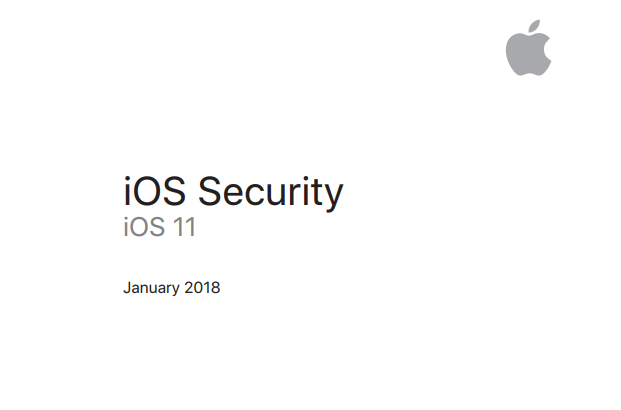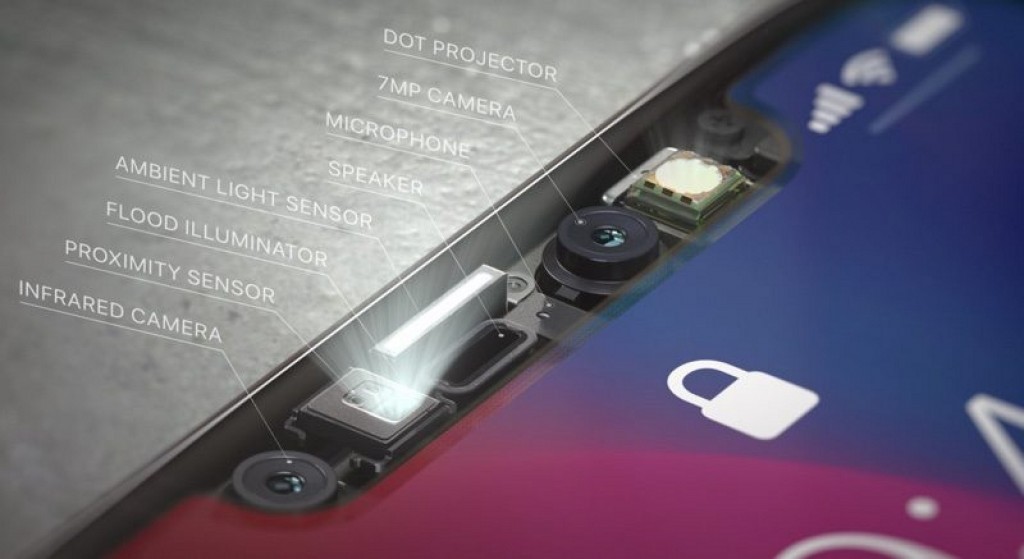Apple Shares Updated iOS Security Guide for Face ID, Apple Pay Cash and More
- Jan 15,2018 | Apple Battery Replacement, iOS Security Guide
- By Admin
Apple today has shared a revised version of its iOS Security Guide on last Thursday, dated January 11, 2018. The new document, which comes in at 78 pages long includes new details and information that covers features introduced in iOS 11.1 and iOS 11.2, like Face ID and Apple Pay Cash, and more…

Much of the information in the document on Face ID has been previously shared by Apple in a dedicated Face ID white paper and accompanying support document that was released in last September following the iPhone X’s announcement. In the updated iOS security white paper, Apple also introduced features such as Shared memos, CloudKit and Siri recommendations, as well as how to ensure security.

Updated for iOS 11.2
- Apple Pay Cash
Updated for iOS 11.1
- Security Certifications and Programs
- Touch ID/Face ID
- Shared Notes
- CloudKit end-to-end encryption
- TLS
- Apple Pay, Paying with Apple Pay on the web
- Siri Suggestions
- Shared iPad
Apple writes that Face ID is meant to provide easy access to your device “within thoughtful boundaries and time constraints:
“This makes using a longer, more complex passcode far more practical because you don’t need to enter it as frequently. Touch ID and Face ID don’t replace your passcode, but provide easy access to your device within thoughtful boundaries and time constraints.
This is important because a strong passcode forms the foundation of your iOS device’s cryptographic protection.”
Apple also stresses a random person looking at your device and successfully using the face ID to unlock it is very unlikely, but it will be less accurate for siblings, twins, and young children.
“The probability that a random person in the population could look at your iPhone X and unlock it using Face ID is approximately 1 in 1,000,000 (versus 1 in 50,000 for Touch ID). For additional protection, both Touch ID and Face ID allow only five unsuccessful match attempts before a passcode is required to obtain access to your device.
With Face ID, the probability of a false match is different for twins and siblings that look like you as well as among children under the age of 13, because their distinct facial features may not have fully developed.”
The document also offers color on the security of iOS 11.2’s new Apple Pay Cash feature. Apple’s security team explains that Apple Payments Inc. will store and use transaction data for fraud protection and other basic purposes in some cases:
“Apple Payments Inc. will store and may use your transaction data for troubleshooting, fraud prevention, and regulatory purposes once a transaction is completed. The rest of Apple doesn’t know who you sent money to, received money from, or where you made a purchase with your Apple Pay Cash card.”
Read the full content of updated iOS security white paper in here, it’s pretty lengthy at 78 pages, so you may want to skip to the sections you’re most interested in.
Recent posts
- iOS 12.2 Beta Doesn’t Support Face ID to Next-Gen iPad, References new iPod Touch 7
- Facebook COO Admits that the Company has Trapped into Trouble, Says ‘We Need to Do Better’
- Apple Replaced Batteries for 11 Million iPhone last year, Far More than Expected
- OnLeaks Releases the Early Renders of New iPhone for 2019
- Apple Responds to Reports of Bent iPad Pros: “Tighter than Previous Generations”
Archives
- January 2019
- December 2018
- November 2018
- October 2018
- September 2018
- August 2018
- July 2018
- June 2018
- May 2018
- April 2018
- March 2018
- February 2018
- January 2018
- December 2017
- November 2017
- October 2017
- September 2017
- August 2017
- July 2017
- June 2017
- May 2017
- April 2017
- March 2017
- February 2017
- January 2017
- December 2016
- November 2016
- October 2016
- September 2016
- August 2016
Categories
- Apple
- Apple Battery Replacement
- Apple Music
- Apple News
- Apple September Event
- Apple Watch
- Cambridge Analytica Data Scandal
- Global Mobile App
- HomePod
- How-to-Guide
- Howto Guides
- iOS
- iOS Security Guide
- iPad
- iPhone X
- iPhone XS
- IT News
- Mac App Uninstall
- Mac News
- Mac Tools
- MacBook Air
- Mobile World Congress 2018
- News
- Samsung Galaxy
- Samsung Galaxy Note
- Toshiba
- Tumblr
- Uncategorized
- Use Tips for Mac
- World News
- WWDC 2018
Comments